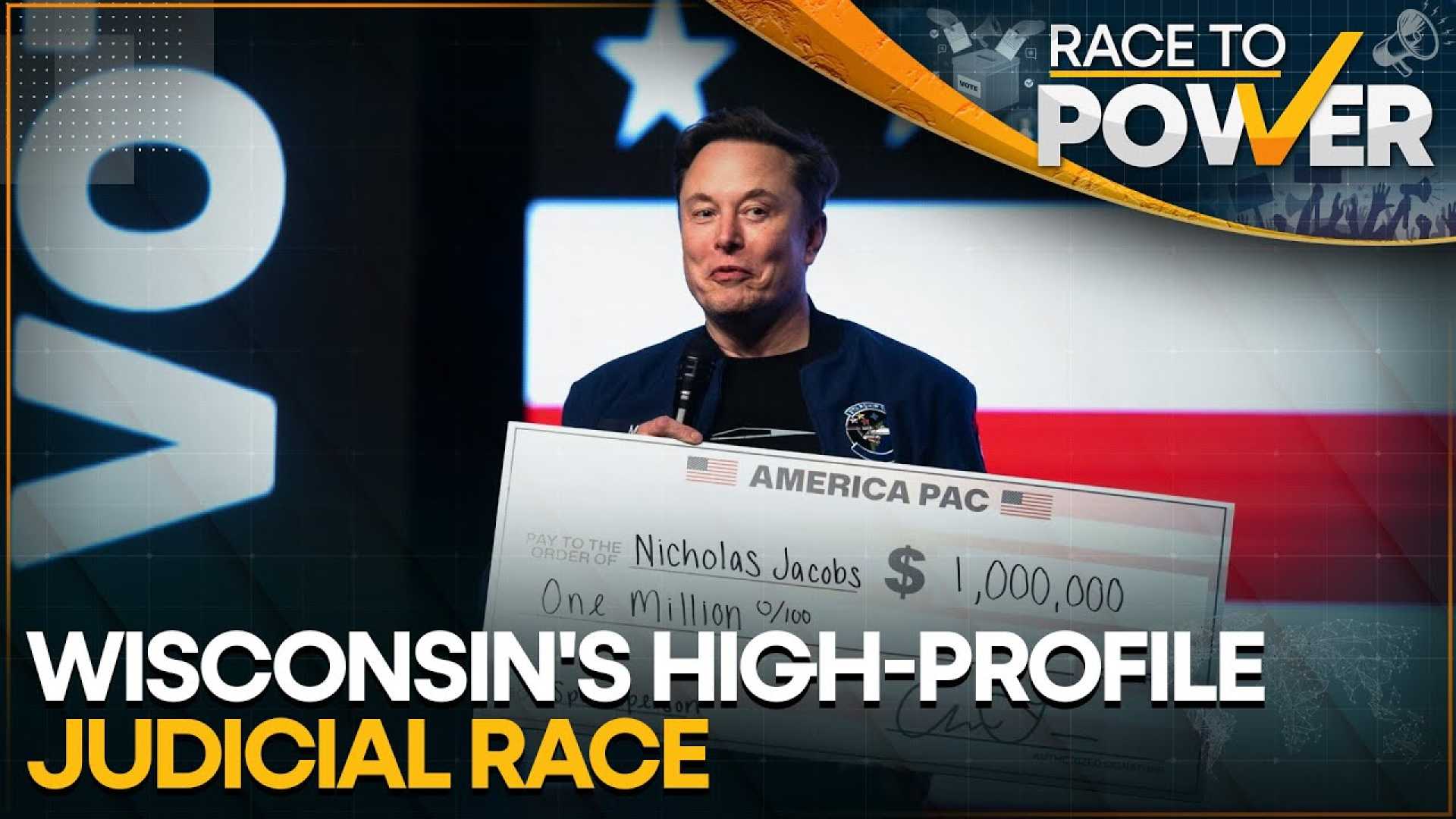Politics
Wisconsin’s Supreme Court Race: Musk’s Influence Looms Large

MILWAUKEE, Wis. — Wisconsin voters are heading to the polls this Tuesday for the state Supreme Court election, which has become the most expensive judicial contest in U.S. history, exceeding $90 million in spending. The contest is focused on an open seat that could shift the ideological balance of the court, currently held by a narrow liberal majority of 4-3.
With significant backing from billionaire Elon Musk and President Donald Trump, conservative candidate Brad Schimel is challenging liberal candidate Susan Crawford, who is supported by former President Barack Obama and prominent Democratic donors like George Soros. The stakes are high as voter sentiment regarding Trump and his policies will be put to the test in this crucial battleground state.
— “Many see this as a litmus test. This is the first chance voters get to weigh in on President Trump’s agenda,” said Rachel Scott, senior congressional correspondent for ABC News. Scott’s insights highlight how this race is perceived as a referendum on the current administration’s policies, particularly in light of the recent overturning of Roe v. Wade, which has shifted the battle over abortion rights back to state courts.
Canvasser Ronneisha Mallet, 23, who was mobilizing voters in a quiet suburban area, emphasized the importance of the election. “People aren’t looking at the bigger picture. They think it’s just a local election, but it goes all the way to the White House,” Mallet stated, reflecting the heightened emotions surrounding Musk’s involvement in the contest.
As of Monday, more than 644,000 voters had cast their ballots early, according to the Wisconsin Elections Commission. “I hate Musk! I hate his guts!” exclaimed an independent voter, Peggy, who expressed discontent with his influence and questioned the ethical implications of his financial support in local elections. “I think Musk bought the presidency and now he’s trying to buy this election too,” she said.
In a show of his influence, Musk hosted a rally over the weekend where he controversially handed out two $1 million checks to voters who signed a petition opposing what he referred to as ‘activist judges.’ This move has drawn significant criticism from the opposing camp. Wisconsin Attorney General Josh Kaul has claimed the actions represent an attempt to circumvent electoral laws against vote buying.
Musk’s support for Schimel contrasts with the Democratic donations rallying around Crawford, as strategists work to combat the billionaire’s dominance in campaign financing amidst accusations of his interference in democratic processes. Still, the candidates maintain some distance, as Schimel recently told local media that he was unaware of Musk’s rally plans.
The outcome of this election is not just about the court’s composition, it is also a barometer for the national political climate ahead of the midterms and 2028 presidential election. Analysts note that the implications could extend beyond state legislation, with the potential to affect abortion access, voting rights, and congressional redistricting.
Wisconsin’s status as a purple state makes this contest particularly noteworthy, and its results could serve as a bellwether for subsequent elections across the nation. Political engagement here—fueled by Musk’s involvement—may set a precedent for future state Supreme Court races that have traditionally been viewed as nonpartisan.
Polls close at 8 p.m. local time, with results expected late Tuesday night. As both parties brace for what could be a tight and consequential election night, voters remain acutely aware of the implications this race may hold for the future of governance in Wisconsin and beyond.












